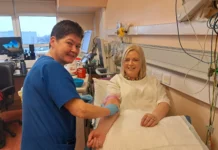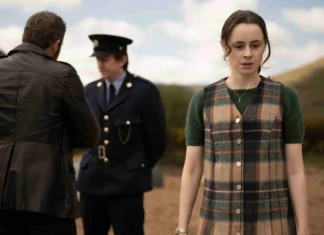Public trust in the government soared last year as a result of measures taken to protect people’s income and economic wellbeing during the COVID-19 crisis new research from NUIG claims.
Last year saw public trust in the government reach a high point of 66% during the COVID-19 crisis, with a jump of 14% recorded between 2019 and 2020.
Professor Cathal O’Donoghue, Established Chair in Social and Public Policy at NUIG has been carrying out research into the government’s social policy responses to the financial crisis and recession of 2008-2012, and the current COVID-19 crisis.
Comparing the two, he says that the unprecedented measures such increased funding for social welfare and protection, and other measures to protect people’s spending power, led to increased trust in the government and public health measures in 2020.
Prof. O’Donoghue said “The impact of the Covid-19 pandemic on Ireland’s economy and public finances has been deeper, faster and more broadly felt than the devastation wreaked by the financial crises that swept Europe from 2008 to 2012.”
“But rapid response and novel initiatives to protect living standards of a large proportion of the population ensured trust in Government and backing for difficult but necessary public health measures.”
Among the measures taken by the government last year to protect the country during the pandemic, the research paper highlights economic measures such as the massive increase in welfare spending, and protections for mortgage holders and renters as key to sustaining public trust and wellbeing.
Unprecedented social welfare programmes were rapidly introduced in 2020 as the COVID-19 crisis shut down the Irish economy, including the Pandemic Unemployment Payment, and Wage Subsidy Scheme.
At the peak of the pandemic’s first wave in May 2020, more than 900,000 people were availing of some COVID-19 welfare payment.
A rent freeze for people economically affected by COVID-19, and protections against evictions, were also introduced by the government to safeguard those in the private rental sector at a time of high unemployment.
Prof O’Donoghue’s research, which has been presented at both the United Nations and the World Health Organisation, was recently published by the Society for the Study of Economic Inequality.
“The extent of the Covid-19 crisis posed significant challenges to Ireland’s welfare state due to the number of people who suddenly became unemployed, the higher share of all family members losing their job and a higher share of middle class families out of work.”
“In an era of volatility in relation to climate change, globalisation and ageing, there is an ongoing need for institutions to protect people from economic swings to provide confidence in future and enhance trust in institutions.”












